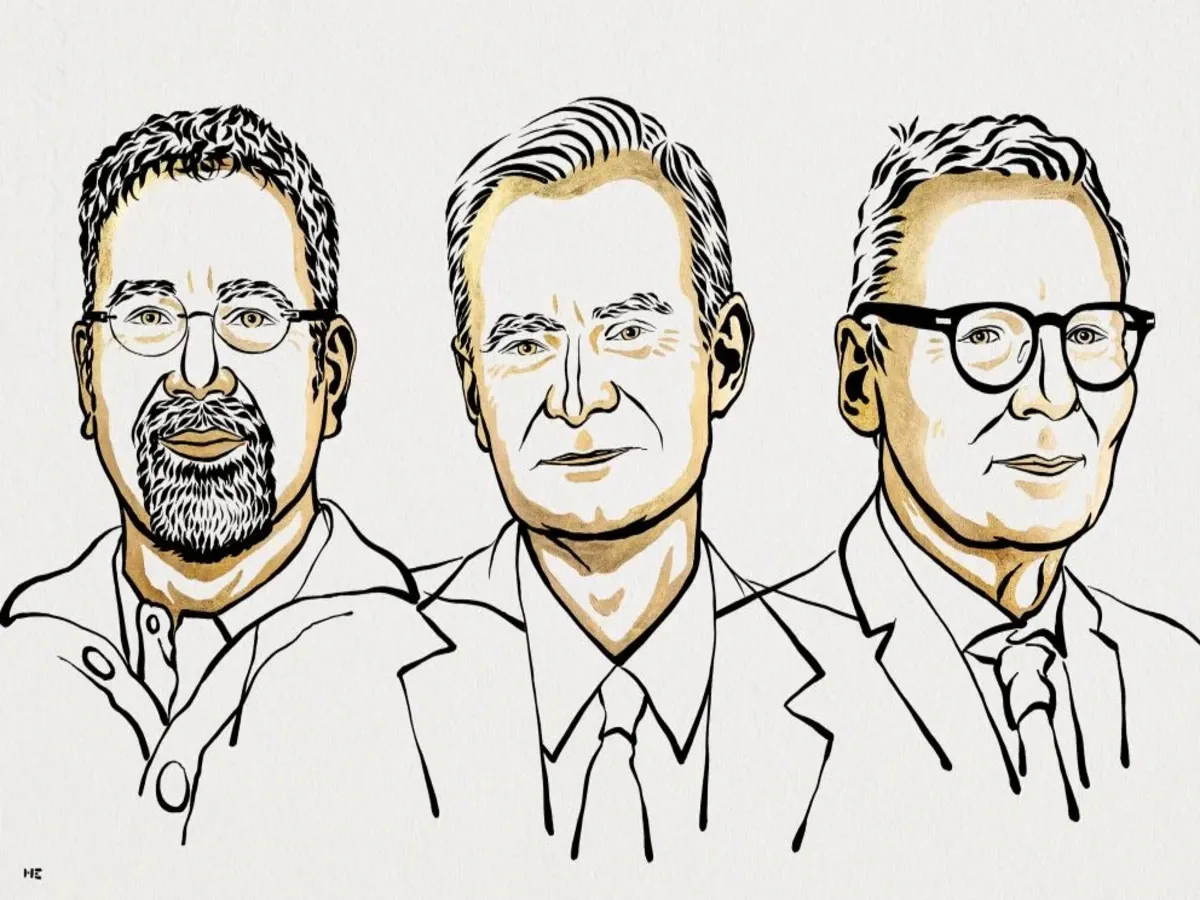Business News
Nobel Prize in Economics 2024 awarded to Daron Acemoglu, Simon Johnson and James A. Robinson

3 min read | Updated on October 15, 2024, 12:52 IST
SUMMARY
The Nobel Prize in Economic Sciences 2024 was awarded to three economists: Daron Acemoglu, Simon Johnson and James A. Robinson. The laureates were awarded for their research on how institutions, shaped by colonisation, impact income inequality between countries around the world.

The Nobel Prize in Economic Sciences was awarded to Daron Acemoglu, Simon Johnson and James A. Robinson for “studies of how institutions are formed and affect prosperity”
The Nobel Prize in Economic Sciences was awarded to Daron Acemoglu, Simon Johnson and James A. Robinson for “studies of how institutions are formed and affect prosperity.” The Nobel Committee announced the laureates on Monday, October 14, from Stockholm, Sweden.
“This year’s laureates in the economic sciences—Daron Acemoglu, Simon Johnson and James Robinson—have demonstrated the importance of societal institutions for a country’s prosperity,” the Nobel Prize committee said.
The laureates’ research delved into the reasons for the huge income gap between the richest and the poorest countries in the world. Today, 20% of the richest countries in the world are 30% wealthier than 20% of the poorest nations.
The answer to this, as per the laureates’ research, lies in the differences in the economic and political institutions that exist between the countries. The reason for these differences goes back to the European colonisation of a large part of the globe in the 16th century.
When Europeans laid claim to a large part of the world, it led to changes in the institutions of the colonised nations.
“This was sometimes dramatic but did not occur in the same way everywhere. In some places, the aim was to exploit the indigenous population and extract resources for the colonisers’ benefit. In others, the colonisers formed inclusive political and economic systems for the long-term benefit of European migrants,” the Nobel committee said in a press release.
The nature of the institutions that developed in the colonised nations depended on the number of European settlers. If the number of settlers was high, the institutions tended to be “inclusive” i.e., institutions that protected property rights and were democratic. Conversely, in nations with fewer settlers, the institutions were “exclusive” i.e., institutions that were at the risk of expropriation and autocratic.
“The introduction of inclusive institutions would create long-term benefits for everyone, but extractive institutions provide short-term gains for the people in power,” the committee added.
“Inclusive institutions were often introduced in countries that were poor when they were colonised, over time resulting in a generally prosperous population. This is an important reason for why former colonies that were once rich are now poor, and vice versa,” the committee said.
The research talks about a “reversal of fortune” for the colonised countries. Colonised nations that were rich in the 1500s are now poor, and previously poor nations are now rich.
“Some countries become trapped in a situation with extractive institutions and low economic growth,” a press release by the Nobel Prize committee said.
“Reducing the vast differences in income between countries is one of our time’s greatest challenges. The laureates have demonstrated the importance of societal institutions for achieving this,” said Jakob Svensson, Chair of the Committee for the Prize in Economic Sciences.
Claudia Goldin is the third woman in history to have won the Nobel Prize in Economic Sciences and the first to have won it unshared.
By signing up you agree to Upstox’s Terms & Conditions
About The Author
Next Story

